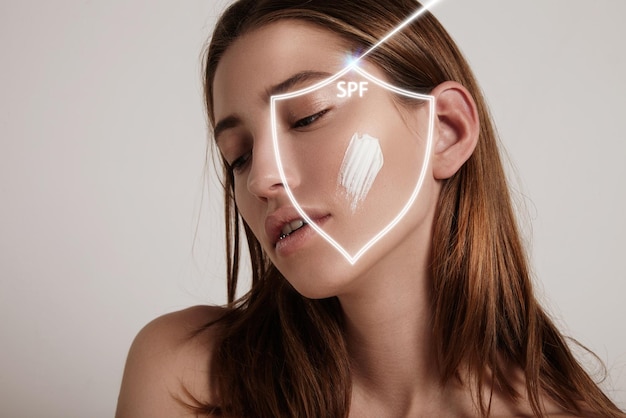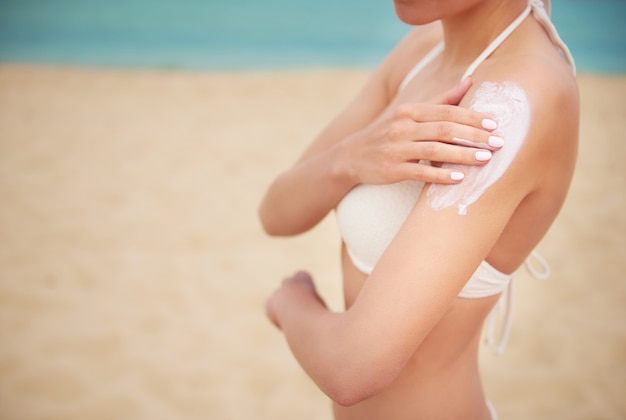Summer is the perfect time to enjoy the outdoors, but it’s also the time when the sun’s harmful UV rays are at their strongest. Protecting your skin from the sun is essential, and sunscreen is the most important tool in your arsenal. However, not all sunscreens are created equal, and it’s important to use sunscreen properly to get the best protection. Here is a guide to help you better use sunscreen this summer.
Choose the right SPF
SPF stands for Sun Protection Factor, which measures the level of protection a sunscreen provides against UVB rays. The American Academy of Dermatology recommends using sunscreen with an SPF of 30 or higher. However, keep in mind that a higher SPF doesn’t mean more protection. SPF 30 blocks about 97% of UVB rays, while SPF 50 blocks about 98%. So, choose an SPF that suits your skin type and activity level.

Apply sunscreen properly
To get the best protection, it’s important to apply sunscreen properly. Apply sunscreen at least 15 minutes before going outside, and reapply every two hours, or more frequently if you are swimming or sweating. Be sure to apply enough sunscreen to cover all exposed skin. A good rule of thumb is to use about a shot glass worth of sunscreen for the entire body.
Look for broad-spectrum protection
UV rays are classified as UVA and UVB, and both can cause skin damage and increase the risk of skin cancer. Look for a sunscreen that provides broad-spectrum protection, which means it protects against both UVA and UVB rays.

Choose the right formula
There are many different types of sunscreen formulas available, such as lotions, sprays, and gels. Choose a formula that suits your skin type and activity level. For example, if you have sensitive skin, choose a sunscreen designed for sensitive skin. If you’re swimming or sweating, choose a water-resistant formula.
Don’t forget to protect your lips and eyes
Your lips and eyes are also susceptible to sun damage, so don’t forget to protect them. Use a lip balm with SPF to protect your lips, and wear sunglasses with UV protection to protect your eyes.
Apply sunscreen even on cloudy days
UV rays can penetrate clouds, so it’s important to wear sunscreen even on cloudy days. Don’t let a cloudy day fool you into thinking you don’t need sunscreen.

Be mindful of expiration dates
Just like any other skincare product, sunscreen has an expiration date. Check the expiration date on your sunscreen bottle and make sure to replace it if it has expired. Using expired sunscreen can cause the active ingredients to break down and become less effective, which means you won’t be getting the protection you need.
Supplement with other sun protection measures
While sunscreen is an important tool for protecting your skin from the sun, it’s not the only measure you should take. Other measures you can take include wearing protective clothing, seeking shade during peak sun hours, and avoiding tanning beds. These measures can help supplement your sunscreen use and provide additional protection for your skin.
Check your skin regularly
Even with proper sunscreen use and other sun protection measures, it’s important to check your skin regularly for signs of skin damage or skin cancer. Look for any changes in moles, freckles, or other marks on your skin, and see a dermatologist if you notice any concerning changes.
In conclusion, protecting your skin from the sun is essential, and a sunscreen is a key tool in your arsenal. By choosing the right SPF, applying sunscreen properly, choosing the right formula, and supplementing with other sun protection measures, you can keep your skin safe and healthy all summer long. Don’t forget to check your skin regularly and seek professional help if you notice any concerning changes. With the right precautions, you can enjoy the sun safely and keep your skin looking great.


